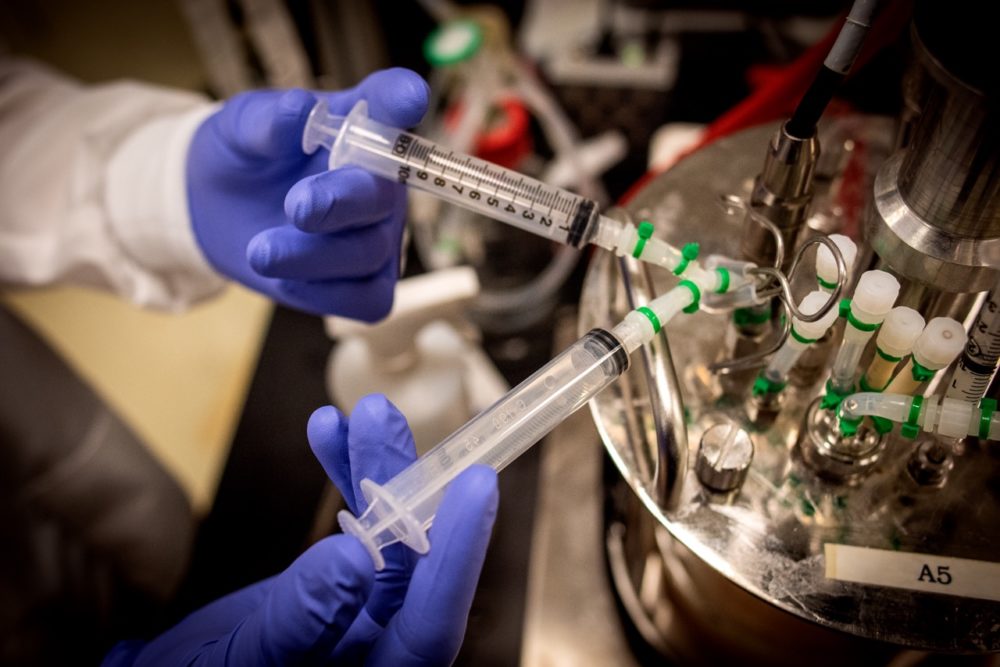Established in 2012 by the U.S. Department of Energy’s (DOE’s) Bioenergy Technologies Office, the Advanced Biofuels and Bioproducts Process Development Unit (ABPDU) at Lawrence Berkeley National Laboratory (LBNL) has helped its partners from industry and academia scale up sustainable products made from raw materials such as plants or municipal waste.
Over the years, the ABPDU has sought feedback from collaborators in order to improve its capabilities in scaling up bioprocesses. At the facility’s Industry Listening Day in October 2019, collaborators suggested that the ABPDU create a set of open source tools that would allow companies to easily transfer processes between bioreactors, a piece of equipment commonly used in the biotech industry.
“Many different bioreactor companies have their own software,” said Brian Lee of Visolis, an ABPDU collaborator who attended the Industry Listening Day. “What we use is different from what is used at ABPDU. Sometimes those transitions don’t occur as smoothly because of different softwares.”

Coding to Support the Bioeconomy…@Home
When the Bay Area was ordered to shelter-in-place in March 2020 due to the COVID-19 pandemic, the ABPDU staff, with the help of ABPDU’s control expert Matt Stettler, created two open source software applications that effectively standardized this transfer process. The software, made with the LabVIEW system-design platform, was made available online on the ABPDU website and was accessed by two of ABPDU’s collaborators, Visolis and Pow.Bio.
“Since we were sheltering in place, we repurposed our time to projects that could be executed remotely from home and still remain relevant to the industry,” said Jan-Philip Prahl, senior process engineer at ABPDU.

Virtual Training Tools Make It Easy for Private Industry
ABPDU staff also created a set of videos that instructed users on how to use the various software applications available at the ABPDU, and made them available on the ABPDU’s YouTube channel.
The ABPDU is offering such resources to enable private industry to use existing infrastructure as much as possible and, in doing so, experience accelerated timelines in commercializing their technologies.
“We made the control software and the videos of standard operating protocols (SOPs) available online on the ABPDU website, so multiple companies do not have to waste resources in reinventing the wheel, and can effortlessly deploy our software for their own applications,” said Deepti Tanjore, Director of ABPDU. She added that such video SOPs can help virtual training and workforce development, an area in which the ABPDU is highly engaged.
“The dream scenario is that it would become so widely available and really become the standard for process control,” said Ouwei Wang, Pow.Bio’s co-founder. “That way, we can readily perform tech transfer either among companies or to scale up processes across various facilities.”
Bryan Lee anticipates that the software will be useful for many other companies in the biotech industry who often face the same challenges in process scale-up.
“If this can spearhead more standardization and have more open source materials available, that would be fantastic,” he said. “Having something that’s open source, that’s available to everybody, can solve many challenges in commercializing technologies.”